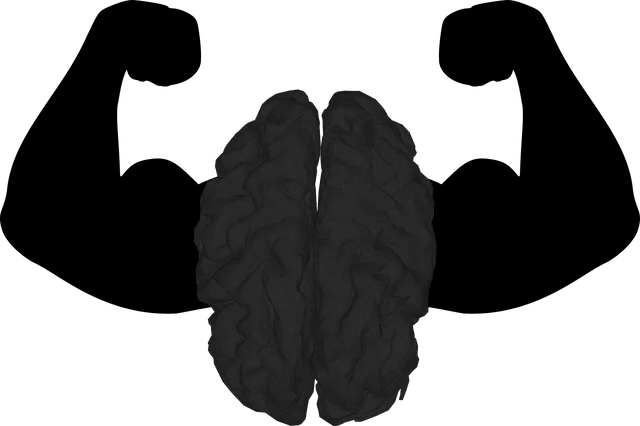The Kaiser Permanente mental health facility in Longmont stresses early identification and prevention of depression through lifestyle changes, stress management workshops, and building supportive communities. They advocate for regular exercise, balanced diets, quality sleep, and social connections to reduce risk factors. The facility offers evidence-based therapies, mindfulness practices, and accessible resources like the Mental Wellness Podcast Series to empower individuals in managing depressive symptoms effectively.
Depression is a prevalent yet treatable condition affecting millions. At the Kaiser Permanente mental health facility in Longmont, experts offer comprehensive strategies for prevention and management. This article explores various aspects of depression prevention, from understanding risk factors and early signs to practical lifestyle changes, social support, mindfulness techniques, and professional help. By leveraging resources available at Kaiser Permanente Longmont, individuals can empower themselves to combat this formidable foe.
- Understanding Depression: Risk Factors and Early Signs from Kaiser Permanente mental health facility Longmont
- Lifestyle Changes for Prevention: Exercise, Diet, Sleep Tips by Kaiser Permanente Longmont Experts
- Social Support Network: Building Connections to Combat Loneliness and Isolation
- Mindfulness and Relaxation Techniques: Managing Stress and Anxiety with Kaiser Permanente's Guidance
- Seeking Professional Help: Therapy, Medication, and Integrated Care Approaches Offered at Kaiser Permanente Longmont
Understanding Depression: Risk Factors and Early Signs from Kaiser Permanente mental health facility Longmont

Depression is a complex mental health condition that affects millions worldwide. Understanding its risk factors and early signs is crucial for effective prevention and timely intervention. The Kaiser Permanente mental health facility in Longmont offers valuable insights into this area, emphasizing the importance of recognizing subtle changes in mood and behavior.
According to the Longmont facility, depression often stems from a combination of genetic predisposition, environmental stressors, and brain chemistry imbalances. It can manifest in various ways, including persistent sadness, loss of interest in activities once enjoyed, changes in appetite and sleep patterns, fatigue, difficulty concentrating, and feelings of hopelessness or guilt. Identifying these early signs is essential, as the Kaiser Permanente mental health experts suggest that early intervention through coping skills development and stress management workshops by organizations like them can significantly improve outcomes. Additionally, focusing on emotional regulation techniques empowers individuals to navigate life’s challenges more effectively, potentially preventing depressive episodes.
Lifestyle Changes for Prevention: Exercise, Diet, Sleep Tips by Kaiser Permanente Longmont Experts

At Kaiser Permanente’s mental health facility in Longmont, experts emphasize the power of lifestyle changes as a key strategy for depression prevention. Regular exercise, they advise, can boost mood and reduce symptoms by releasing endorphins, the body’s natural feel-good chemicals. Aiming for at least 30 minutes of moderate activity most days of the week—such as brisk walking or cycling—can make a significant difference in overall well-being.
Diet also plays a crucial role in mental health. A balanced diet rich in fruits, vegetables, whole grains, and lean proteins can support brain function and stable energy levels. Reducing intake of processed foods, sugars, and unhealthy fats, which can impact mood and inflammation, is another valuable self-care practice. Additionally, prioritizing sleep is essential; adults should strive for 7-9 hours per night to allow the body and mind to rest and recover effectively.
Social Support Network: Building Connections to Combat Loneliness and Isolation

Loneliness and isolation are significant risk factors for depression, making the development of a robust social support network crucial in prevention strategies. A supportive community offers a sense of belonging and can provide a buffer against the negative impacts of stress. At the Kaiser Permanente mental health facility in Longmont, professionals emphasize the importance of fostering connections to combat these feelings. Encouraging individuals to build and maintain relationships, whether through community groups, social clubs, or family dynamics, helps create a safety net that promotes emotional well-being.
Emotional regulation is a key aspect of this process, as learning to manage and express emotions effectively can strengthen bonds. Mental health awareness initiatives often focus on teaching individuals to recognize signs of stress and distress, encouraging them to reach out for support before feelings of isolation escalate. Stress management techniques, such as mindfulness practices and social skills training, are valuable tools that can be facilitated through these community connections, ultimately contributing to a healthier and happier lifestyle.
Mindfulness and Relaxation Techniques: Managing Stress and Anxiety with Kaiser Permanente's Guidance

Depression prevention starts with effective stress management, and Kaiser Permanente’s mental health facility in Longmont offers valuable insights into mindfulness and relaxation techniques. These practices, backed by the expertise of Kaiser’s professionals, aim to reduce anxiety and promote emotional well-being. By incorporating mindfulness exercises into daily routines, individuals can develop a greater sense of self-awareness and learn to respond to stressful situations with more clarity and calmness.
The guidance from Kaiser Permanente emphasizes compassion cultivation practices and emotional intelligence as crucial components of mental health care. Public awareness campaigns development around these topics has been shown to foster supportive communities where individuals feel understood and encouraged to seek help when needed. Through dedicated mindfulness training, one can cultivate a deeper connection with their emotions, enabling better management of depressive symptoms and enhancing overall resilience.
Seeking Professional Help: Therapy, Medication, and Integrated Care Approaches Offered at Kaiser Permanente Longmont

At Kaiser Permanente Longmont, individuals facing depression have access to a comprehensive range of mental health services designed to address complex needs. Their dedicated mental health facility offers therapy options such as cognitive-behavioral therapy (CBT), dialectical behavior therapy (DBT), and interpersonal psychotherapy, empowering patients with evidence-based techniques to manage symptoms effectively. Medication management is also available, with psychiatrists prescribing tailored medications to support the healing process.
For a holistic approach, Kaiser Permanente Longmont integrates various care methods. This includes combining talk therapy with mindfulness practices, encouraging clients to explore Mind Over Matter principles for a confidence-boosting mindset shift. Their Mental Wellness Podcast Series Production further supports community members by providing accessible resources and sharing inspiring stories related to mental wellness.
Depression is a serious yet preventable condition. By understanding its risk factors and early signs, adopting healthy lifestyle changes like regular exercise, balanced diets, and adequate sleep, building a strong social support network, practicing mindfulness, and seeking professional help when needed, individuals can effectively manage and prevent depression. Kaiser Permanente mental health facility Longmont offers comprehensive resources to guide and support individuals through these strategies, promoting overall well-being and resilience.






